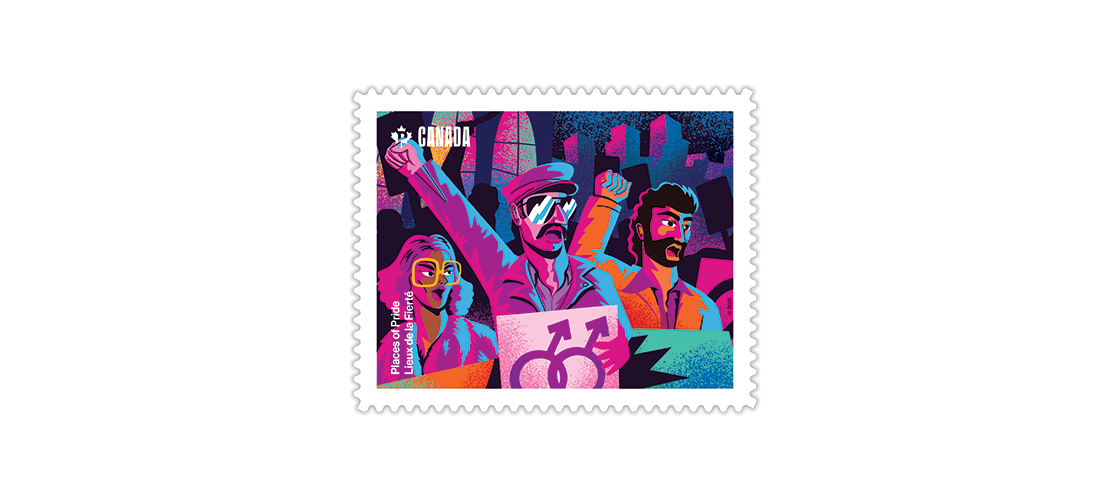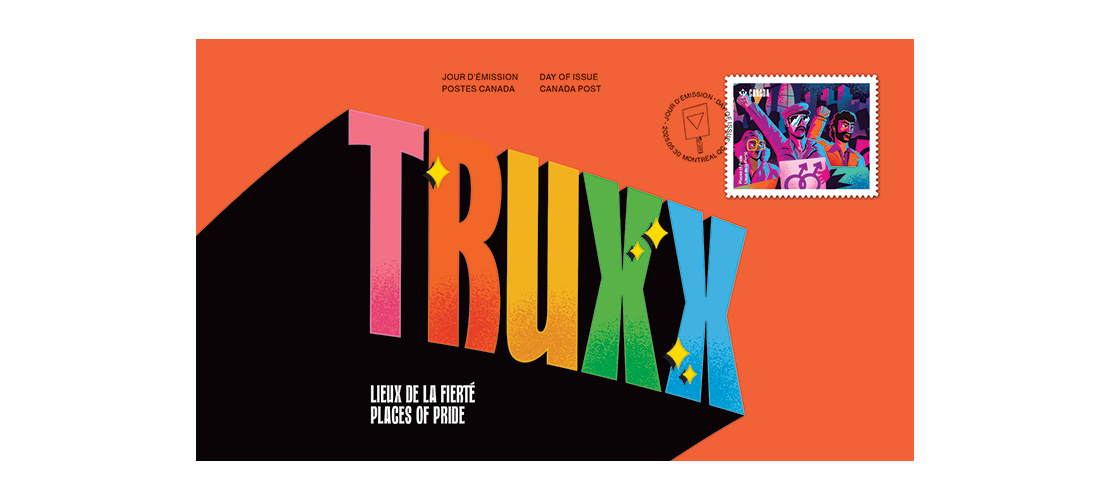Located in the heart of Montreal’s gay village at the time, Truxx stood out as a vibrant sanctuary for the city’s queer community in the 1970s. The bar was a beloved gathering place, but on the night of October 21 and into the morning of October 22, 1977, a police raid on Truxx ignited a defiant uprising, sparking a movement that led to groundbreaking legislative reforms in Quebec.
The monumental moment is one of four commemorated in Canada Post’s new stamp issue, “Places of Pride,” which shines a light on the places and events in which Canada’s 2SLGBTQIA+ communities fought for safe spaces and altered the course of history in Canada.
A regime of police brutality toward Montreal’s gay and lesbian populations had already been underway before the infamous night at Truxx – a “clean up” effort in advance of the 1976 Olympics, hosted in Montréal. “There had been a series of regular raids on clubs,” Ross Higgins, co-founder of the Quebec Gay Archives, tells Canada Post. “The police had a quota for arrests.”

The arrests continued long after the Games wrapped, but the raid at Truxx eclipsed them all. On that night, as many as fifty armed police officers stormed into the club. “They entered the bar with machine guns and cameras,” says Higgins, “and it was a normal thing.” But the scale of the arrests that were made that fateful night were far from ‘normal.’ By the following morning, more than one hundred people were arrested for being found in a common bawdy house. It was the largest mass arrest since the October Crisis of 1970.
The response by an outraged local community was swift. Organized mainly by l’Association pour les droits des gai(e)s du Québec, roughly 2,000 citizens – both members and supports of the 2SLGBTQIA+ community – took to the corner of Stanley and St. Catherine the night after the raid, to protest the arrests and continual mistreatment and harassment. “That led to a whole change in attitude,” notes Higgins.
“[This was] the beginnings of the gay movement, the gay liberation movement,” says Higgins. “What distinguished gay liberation was the need to come out, to be out, to break the invisibility we lived in. We lived lives in silence, invisible to society at large.”
On December 15, 1977, in the wake of the protests, Quebec’s National Assembly passed Bill 88 – a pivotal turning point for human rights in the province. The Bill amended the Quebec Charter of Human Rights and Freedoms to explicitly prohibit discrimination on the basis of sexual orientation.
“It made Quebec one of the first major jurisdictions in the world to protect homosexuals by including sexual orientation in the Charter,” says Higgins.
Those legal protections – and the people who fought for it – laid a foundation for equality and respect that communities continue to build upon today. As Higgins puts it, “It was the beginning of a new era.”

Remembering the night of police raids at Montreal gay bar Truxx in 1977 – and the resulting protests that brought 2SLGBTQIA+ rights to the forefront
Available now